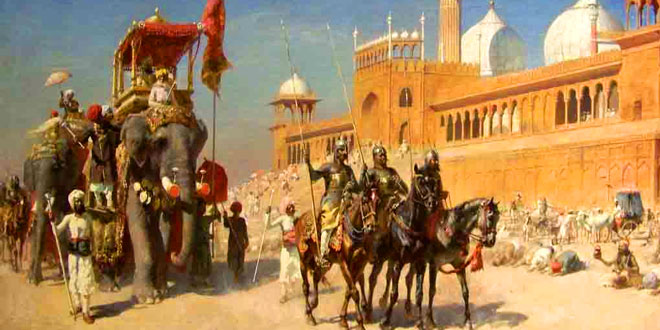Question: What is colonial? Explain briefly.
Answer: That period of history of a country is called colonial (period or rule) during which period a country remains a colony of an imperial power. For e.g. – generally the period of the Indian history from 1757 to 1947 is called a colonial period of the Indian history.
Question: Why do you think that it is incorrect to fix precise dates to processes that happen over a period of time?
Answer: Time does not have to be always precisely dated in terms of a particular year or a month. Sometimes it is actually incorrect to fix precise dates to processes that happen over a period of time. People in India did not begin drinking tea one fine day, they developed a taste for it over time. There can be one clear date for a process such as this.
Question: “Instead of fixing a date, it is more correct only refer to a span of time?” Do you agree? If yes, briefly mention.
Answer: We cannot fix one single date on which British rule was established or the national movement started or changes took place within the economy and society. All these things happened over a stretch of time. We can only refer to a span of time, an approximate period over which particular changes become visible.
Question: What is the history? How has the study of history evolved over time?
Answer: History is the study of changing patterns in society. Over time, history has developed and evolved. Once it revolved around the life of powerful people (personality-based). But, how it mainly deals with lives of conman people their ideas and thoughts – Also, it helps us know how societies and economies change with time.
Question: List the defining features of the modern era. Why do Indian historians not want to call the British rule in India a ‘modern’ period?
Answer: Some of the defining features of the modern era are scientific progress. Industrialization colonization and urbanization or growth of cities. The British treated India as a colony. They took away raw materials from India and using that material made finished goods in their country. This made India a important of “British” and treated our industrialization process. This period is called colonial a not modern.
Question: Write a modern Time in history.
Answer:
- Span of time is more important in history rather than a precise date.
- History that was taught a few decades ago was all political history.
- It is easier to define dates for events in political history.
- For eg.-we know the sequence of events, year-wise, of the Revolt of 1857.
- However, for social, economic and cultural history, specific dates cannot be assigned.
Question: What is the ‘modern’ period associated with?
Answer: The modern period in India is associated with the establishment of British colonial rule and the fight we put up against it. It also cover socio-cultural change that came about in India under the influence of the British.
 Class Notes NCERT Solutions for CBSE Students
Class Notes NCERT Solutions for CBSE Students



It’s very much interested